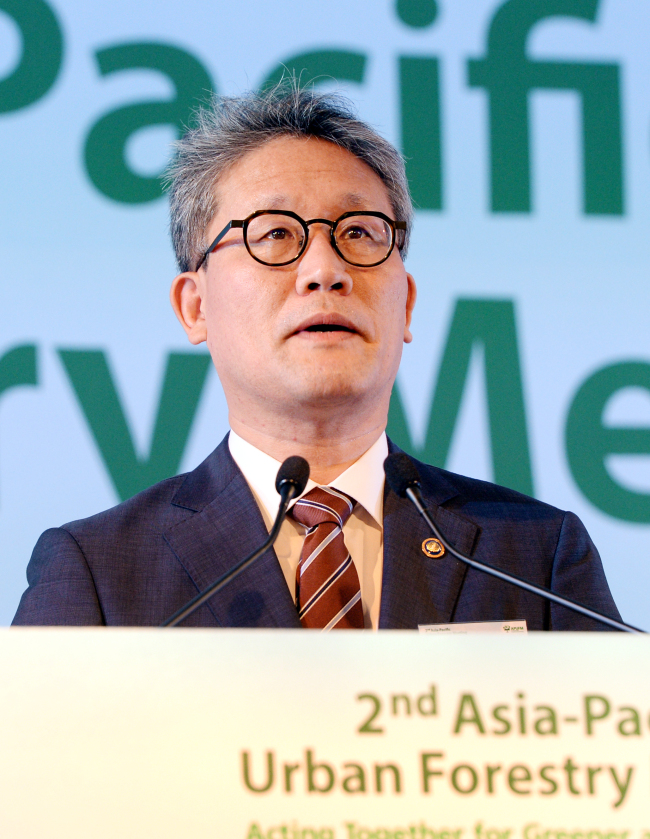With Asia home to more than half of the world’s urban population, the depletion of natural resources, diminishing water quality, increased air pollution and adverse climate change effects are considered some of the biggest threats to humanity that experts are looking to combat amid growing urbanization across the continent.
Therefore, Kim Jae-hyun, minster for the Korea Forest Service, is stressing the need for the government to use Korea’s vast greenery to improve the country’s environmental and socioeconomic systems and achieve sustainability against expanding industrial development.
Less than two months since being appointed as forest service minster, Kim says his current vision is to use all aspects of Korea’s forests to meet the diverse needs of the people.

Kim Jae-hyun, minister for the Korea Forest Service. (Park Hyun-koo/The Korea Herald)
“Forests are Korea’s largest resource and have great (environmental and economic) potential,” Kim said in an interview with The Korea Herald, adding that forestation makes up roughly 63 percent of South Korea.
“A wide range of national needs can be provided through forestation including quality food, building materials, rest and healing as well as quality education,” Kim said. “In the process of linking various national demands, we can improve the quality of people’s lives and create a lot of good jobs. This is the people-oriented resource recycling economy that is being pursued by the Korea Forest Service.”
The World Health Organization recommends that a country maintains a per capita urban forest area of 9 square meters. According to the Korea Forest Service, the per capita forest area of Korea is 9.9 square meters and “barely surpasses the WHO’s recommendation.”
In addition to the socioeconomic benefits, such as providing citizens with destinations for rest and relaxation, further expanding the country’s woodland ecosystem is crucial in combating worsening air pollution and spikes in yellow dust emissions, the forest minister said.
“The forest has so many functions, one of which is to purify air pollutants like fine dust,” said Kim. “Korea’s forests absorb a total of 1,070,000 tons of air pollutants per year, of which roughly 290,000 tons of fine dust is absorbed. This directly corresponds to the amount of dust pollutants emitted in the air by some 170 million vehicles a year.”
“In addition, the woods also contribute to other functions including providing a sense of psychological peace of mind by helping reduce the volume of city noise,” he continued. “In the future, as fine dust and summer heat waves continue to evolve and lead to serious social implications, I think that the role of urban forests as eco-friendly alternatives to solving such social issues will be heavily emphasized.”
By Julie Jackson (
juliejackson@heraldcorp.com) and Lee Kwon-hyoung (
kwonhl@heraldcorp.com)






